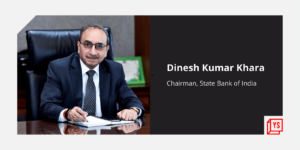The market regulator has asked funds to disclose their fund managers’ details including nationality and qualifications
SEBI has opined that AIFs can raise funds from foreign nationals without being considered FDI
Recently, SEBI has been surprising 20+ PE, VC and hedge funds with unannounced visits, to check their compliance with the relevant laws
The Securities and Exchange Board of India (SEBI) has reportedly asked Indian private equity (PE) and venture capital (VC) funds to specifically disclose their fund managers’ details. The market regulator wants to ascertain certain facts including information about the person who owns and controls the fund, his/her nationality and qualifications.
According to an ET report, SEBI had sent an email to these alternative investment funds (AIFs) in late August, asking to disclose whether their sponsors are domestic or overseas entities.
The questions come at a time when there has been increased scrutiny by SEBI on the operation of these PEs and VCs. Further, SEBI has opined that AIFs can raise funds from foreign nationals without being considered FDI if they are formed in India and managed by an Indian national. In any other case, the funds will have to follow the FDI and foreign exchange regulations.
The report citing sources has claimed that with the move, SEBI is only checking if these funds are overstepping the rules and regulations, and a larger probe might be at play.
For instance, the market regulator has also asked the PE and VC funds to share how they consider startup valuations and the process behind them. Further, SEBI has sought the credibility of the valuation vehicles-asking if the funds and their managers made any changes in their valuation practices in the last three years.
Also, SEBI has been surprising 20+ PE, VC and hedge funds managing over INR 10,000 Cr in funds with unannounced visits, to check their compliance with the relevant laws. Reports suggest that it is considering factors and situations such as conflicts of interest, non-adherence to mandates, diversification problems, control of AIFs and changes thereof and outsourcing problems.
One of the problems that have been more sought out is the priority of payouts to certain investors, before the end of the fund life cycle.
It is noteworthy that AIFs have different regulatory standards than mutual funds and other stock market products. Yet, the fine line between investments in startups and open markets is gradually decreasing considering that many startups are going public. Thus, SEBI is exercising its powers suo moto, to see if foreign investors are outsmarting the ecosystem’s regulations.








